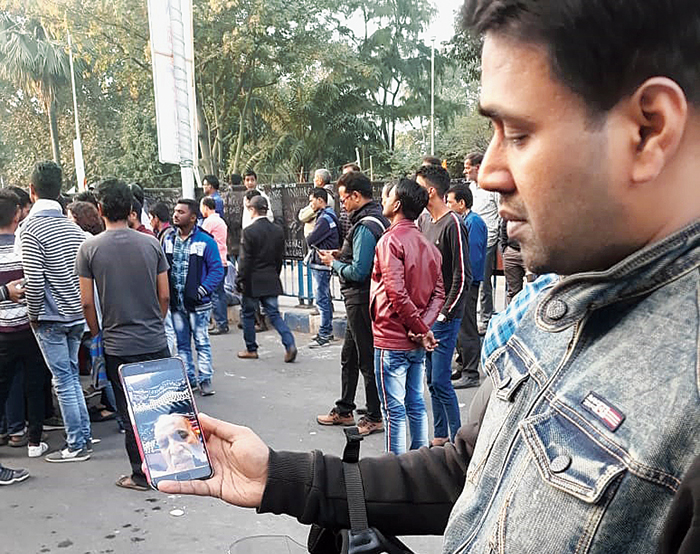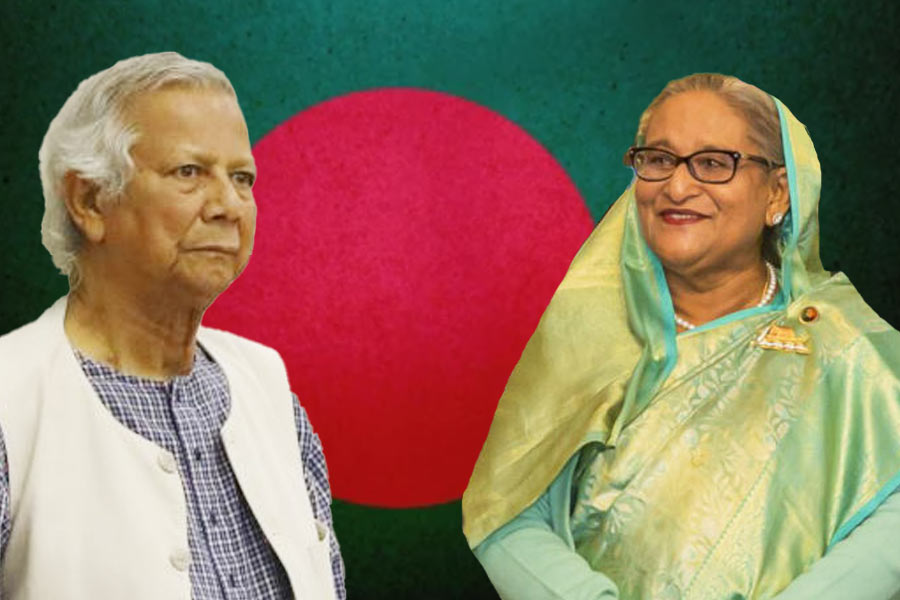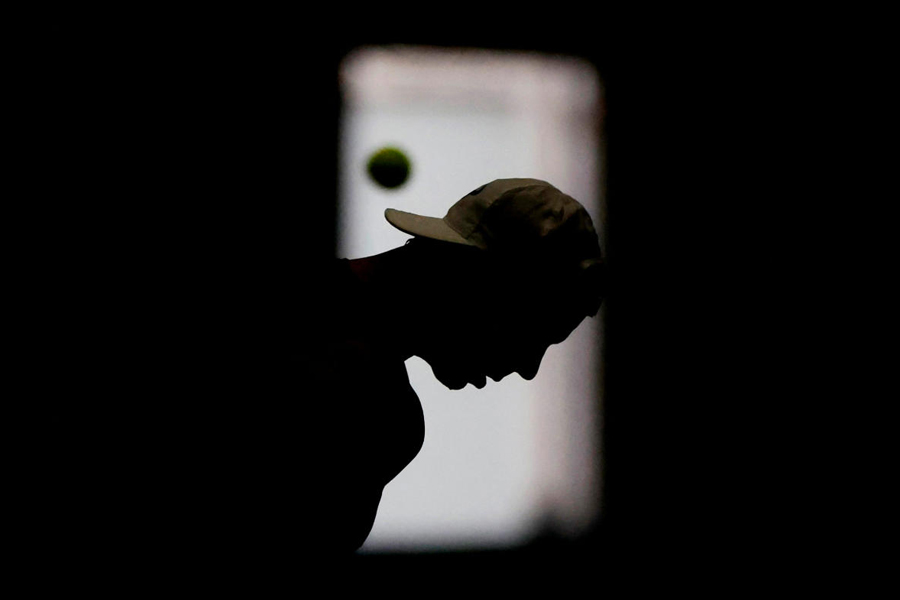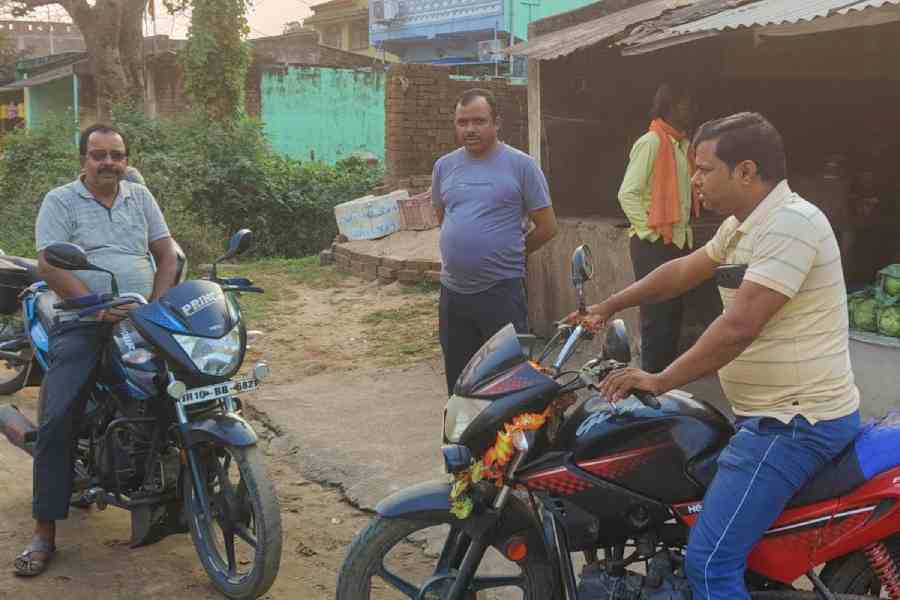Father joins protest via video call
Businessman Imran Hasan and father Mohammad Yusuf Hasan
Imran Hasan was on video call for the better part of a protest rally at Esplanade.
It was not a work call. Imran was updating father Mohammad Yusuf Hasan, who was at their home in Kidderpore, about the proceedings.
Yusuf could not step out because of “severe pain in his legs” but wanted to show solidarity with those protesting the Citizenship (Amendment) Act and the National Register of Citizens.
“He wanted to see how many people had turned up for the meeting,” said Imran, who runs a garments business.
“My father wanted to come but could not because of severe pain in his legs. Before I set out for the rally, he told me I should do a video call so that he could see how many of his Hindu and Muslim brothers are out on the streets protesting.”
The participation of people from all religions in the protest proves that the issue does not concern only a “minority” community.
Imran kept moving his phone around the venue and his father had his eyes glued to his mobile screen.
Imran is the fifth generation of his family to live in India. He feels it would be a shame if his family members, friends or those from his community have to produce documents to prove their identity in their “own country”.
“Muslims and Hindus fought together for Independence and now Muslims have to provide proof that they are Indians. Is this justified? Isn’t it a shame?” he asked.
“The British called us Indians. Years after Independence this government is categorising us as Hindus and Muslims. We stayed here by choice because this is our country, too,” Imran said.
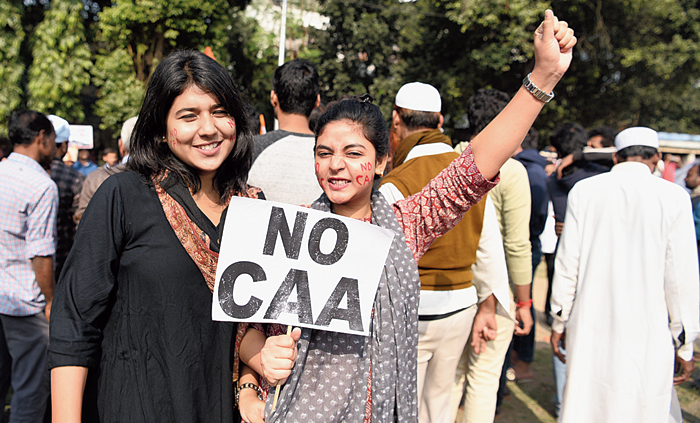
Anney Riaz, 22, and (right) Sabnam Khatun, 22, are hostel mates who were at Ramlila Maidan on Thursday. Anney, a third-year student at Maulana Azad College, wants the government to include all religions in the Citizenship (Amendment) Act. “There are Muslims, such as Ahamadiyyas, who are facing religious persecution in Pakistan. Why not citizenship for them?” she asked. Sabnam, a third-year student at Aliah University, said sometimes she felt that even their existence would be under threat. Picture by Gautam Bose
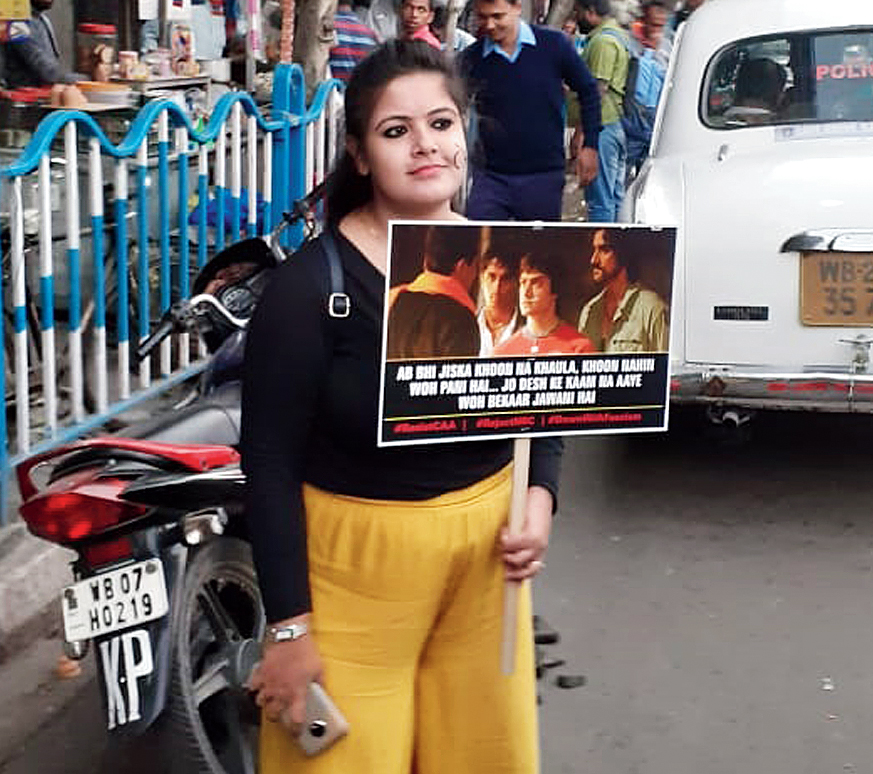
Shreya Das with a poster of Rang De Basanti
It’s a crisis moment
Shreya Das, English teacher at Techno India Institute of Technology
Shreya Das was waiting at a bus stop along Central Avenue with a poster from the film Rang De Basanti.
The poster read: “Ab bhi jiska khoon na khaula, khoon nahin woh pani hai, jo desh ke kaam na aaye woh bekaar jawani hai (If your blood still does not boil, it is not blood but water; those who can’t be of service to the nation, their youth is a waste)”.
Das took a break from her engagements to be part of the protest at Esplanade called by the Joint Forum Against the National Register of Citizens.
But why was she still with the poster after the protest was over? Das, a film buff, said she wanted to sensitise as many people as possible while waiting for a bus on her way home to Dunlop.
“This is all that we can do in a moment of crisis like this. The dialogue from this iconic film was the best way to relate to people,” Das said. Holding the poster, she kept explaining to bystanders the reason behind the step. “The poster has Siddharth, the only actor who has been vocal against the unconstitutional act.”

